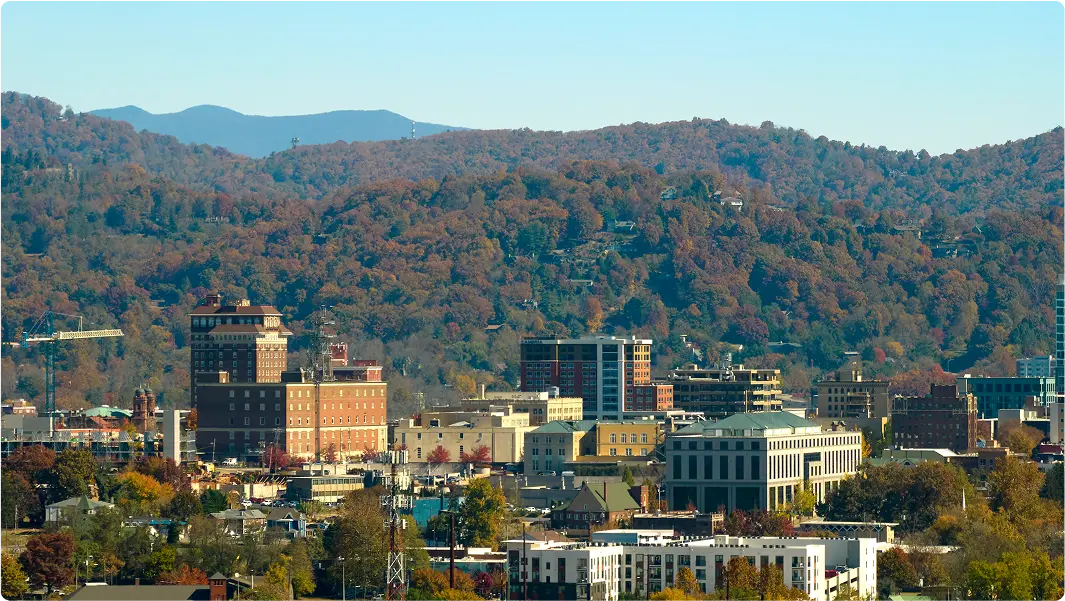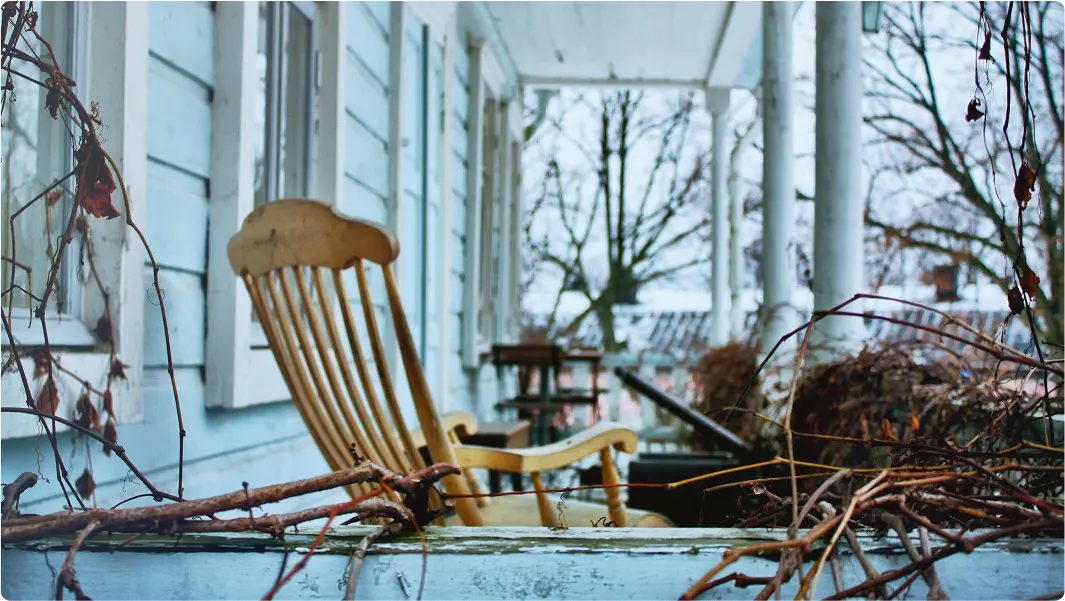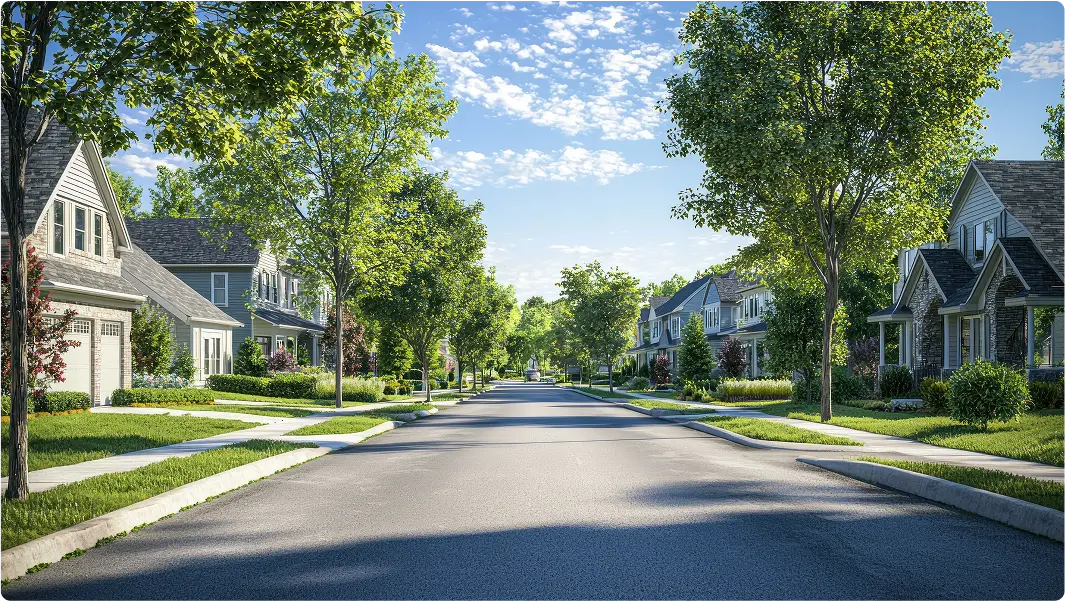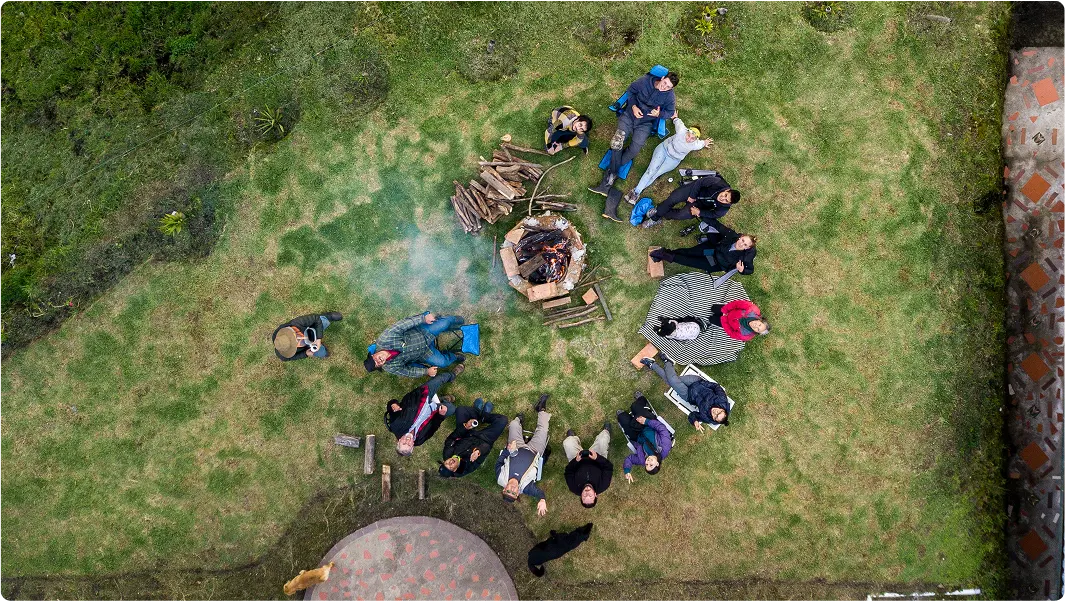Asheville Short-Term Rental Guide: Market Insights, STR Regulations, and Impact of Helene.

We’ll cover Asheville’s short-term rental market, including earnings potential, neighborhood insights, and seasonal strategies. We’ll discuss the impact of Hurricane Helene on bookings and revenue and explain the city’s strict STR regulations to help homeowners navigate legal requirements while maximizing profits.

Why Asheville is a Profitable Market for STR Homeowners
Demand, Occupancy Rates, and Average Daily Rates
Asheville’s short-term vacation rental market has over 2,500 active listings. According to AirDNA market data, the average occupancy rate is 53%, with daily rates averaging around $ 231.90, providing well-managed properties with strong earning potential. With annual revenues averaging $23.1K and steady growth in both occupancy and rates over the past year, the city offers a stable environment for hosts. High tourism demand, driven by the city’s mix of outdoor adventures, cultural attractions, and culinary scene, creates steady booking potential year-round.

Rising Tensions in Asheville’s Short-Term Rental Market
Over the past decade, short-term rentals have become a major and often contentious pillar of Asheville’s tourism economy. In Buncombe County, revenue from the sector grew from less than $33 million in 2015–2016 to more than $232 million in 2023–2024, now accounting for over one-third of total lodging sales, up from just 13% in 2016. These properties have become a crucial source of income for many local homeowners, including families.
However, affordable housing advocates argue that short-term rentals are displacing homes once available to long-term residents and driving up housing costs. A 2022 county-commissioned study identified more than 5,200 active STR units, about 4.5% of all housing in the county—representing over two-thirds of its “rental housing gap” between available units and resident demand.
In response, the City of Asheville banned new whole-home short-term rentals in 2018, while Buncombe County formed a special committee to explore stricter regulations for operators.
Navigating Asheville’s Short-Term Rental Laws
Asheville maintains some of the strictest short-term rental laws in North Carolina. Whether you plan to rent your entire property as a Short-Term Vacation Rental (STVR) or operate under Asheville homestay regulations, it is essential to understand the legal framework before listing your property on Airbnb or Vrbo.

STR in Asheville is only allowed in the Resort Zone Requirements
Full-home vacation short-term rentals operating under 30 days are not allowed in Asheville. Only exclusively permitted within spaciously designated Asheville resort zoning districts, as outlined in the City of Asheville's zoning ordinances.
Properties seeking to operate as Short-Term Vacation Rentals (STVRs) must meet specific compliance standards:
Zoning compliance: Operations restricted to approved use districts per municipal code Section 7-8-1(d)
Advertising restrictions: No external signage or promotional displays permitted on property exteriors
Service limitations: Accommodation services only—no additional commercial activities allowed
Parking requirements: Off-street parking must comply with Section 7-11-2 specifications
Duration limits: All bookings must remain under 30 days
Lighting standards: Exterior illumination must maintain residential character
Insurance mandates: Comprehensive liability coverage required for rental operations and guest activities
Tax obligations: Full compliance with occupancy and sales tax requirements
Building code compliance: Properties must meet current municipal building standards
Annual oversight: Zoning permits require yearly renewal and property inspections

Homestay Regulations: Alternative Pathway for Residential Properties
Properties located outside Asheville resort zones may qualify for homestay operations under specific conditions. This regulatory pathway represents the primary option for residential property owners seeking to enter the short-term rental market.
Homestay qualification requirements include:
Residential zoning: Property must be located within approved residential districts
Primary residence requirement: Property owner must maintain full-time occupancy
Room limitations: A Maximum of two bedrooms is available for rental
Booking duration: All reservations must remain under 30 days
Owner presence: Host must be present during guest stays (overnight occupancy required)
Permit restrictions: One homestay permit maximum per individual, household, or entity
Insurance coverage: Liability insurance required with appropriate occupancy and sales tax compliance

A Sudden Shock to the Short-term Market from Hurricane Helene
When Hurricane Helene struck Western North Carolina in late September, it left behind a trail of destruction that hit Asheville’s short-term rental market hard. Entire neighborhoods faced days without power, water, or internet, and many homes suffered significant property damage.
Thousands of Airbnb and vacation rental bookings were abruptly canceled, with AirDNA estimating that 85,000 room nights disappeared in just the first three weeks of October and a sevenfold increase in cancellations compared to the norm. The Buncombe County Tourism Development Authority (BCTDA) reported September 2024 vacation rental revenue down 50% year-over-year, while total lodging sales plunged 35% compared to the same month in 2023.
Asheville’s story didn’t end in the dark. Within weeks, residents, business owners, and community organizations united to repair damaged properties, restore essential services, and relaunch the city’s tourism heartbeat.
Today, visitors once again can visit the city’s restaurants, hotels, and vacation rentals, proving that Asheville’s spirit and its tourism economy are as resilient as the Blue Ridge Mountains that surround it.

Right Neighborhoods in Asheville for tourists to visit
Different Asheville neighborhoods offer varying investment potential based on guest preferences, seasonal demand patterns, and proximity to attractions. Here's a comprehensive analysis of top tourist areas:
Downtown Asheville: Premium Urban Experience
Downtown properties capitalize on walkability, Nightlife access, and concentrated dining options. Guests pay premium rates for convenience and urban amenities, making this area ideal for properties targeting business travelers and weekend getaways.
Montford Historic District: Heritage Charm
This neighborhood attracts guests seeking historic character combined with downtown accessibility. Tree-lined streets, architectural details, and spacious porches appeal to families and extended-stay visitors.
River Arts District: Creative Community Hub
The district's converted warehouses, artist studios, and creative atmosphere draw culturally minded travelers year-round. Properties here benefit from steady foot traffic and unique neighborhood character.
Biltmore Village: Upscale Heritage Tourism
Proximity to the Biltmore Estate and the boutique shopping district attracts affluent visitors. Historic architecture and upscale retail create premium positioning opportunities.
West Asheville: Eclectic Local Culture
This neighborhood appeals to younger demographics and culture-seekers with independent venues, vintage shops, and a local music scene. Properties here can target trend-conscious travelers seeking authentic local experiences.

Seasonal Strategy for Homeowners
Spring: Cultural Festivals and Outdoor Activities
Spring in Asheville brings blooming mountain trails, colorful azaleas, and a full calendar of art and cultural festivals. Travelers are drawn to events like the LEAF Festival and the Asheville Herb Festival, as well as the chance to explore the Blue Ridge Parkway before the summer crowds. For homeowners, this is a shoulder season with steady demand—ideal for attracting early-booking guests at moderate rates while still filling your calendar. Highlight outdoor spaces, decks, and gardens in your listings to stand out.
Summer: Peak Tourism and Events
Summer is Asheville’s busiest time of year, with music festivals, bustling outdoor dining, and heavy foot traffic in neighborhoods like Downtown and Biltmore Village. Occupancy rates peak during this season, and homeowners can charge premium nightly rates. Guests often book months in advance, so this is the time to lock in high-value stays. Offering family-friendly packages, pet policies, or group discounts can help fill remaining dates without dropping your ADR.
Autumn: Leaf Season and Premium Pricing
October is Asheville’s gold mine for short-term rental owners. The fall foliage season draws visitors from all over the country, with peak occupancy and the highest ADRs of the year. Homeowners should anticipate strong competition, so professional photography, flexible booking policies, and updated property descriptions mentioning “fall views” or “leaf season” are crucial. Many guests will pay more for scenic porches, mountain views, and hot tubs during this season.
Winter: Low Season Opportunities
While Asheville’s winter sees a dip in tourism, this is far from an “off” season. Holiday markets, the Biltmore Estate Christmas celebrations, and cozy cabin experiences keep bookings coming. Demand is lower, so homeowners should be ready to adjust pricing and offer targeted promotions—such as extended-stay discounts for remote workers or couples’ getaway packages. Properties with fireplaces, hot tubs, and well-styled interiors perform especially well in winter.

Why Partner with a Professional Management Company
A great location and stylish furnishings will attract attention, but consistent profits and legal compliance require expert management. Asheville’s short-term rental laws are complex, and one mistake could cost you bookings—or worse, your permit.
That’s where Triad Vacation Rentals comes in. We handle everything:
Guest screening to protect your property
Dynamic pricing to maximize your income year-round
Professional marketing & photography to make your listing stand out
Full compliance management so you never have to worry about violating city regulations
You get more revenue, fewer headaches, and the peace of mind that your property is in expert hands.
Ready to see what your property could earn?
Similiar Blogs

Asheville Short-Term Rental Guide: Market Insights, STR Regulations, and Impact of Helene.

Why Airbnb Hosts Should Leave Guest Reviews and How to Write Them Well






